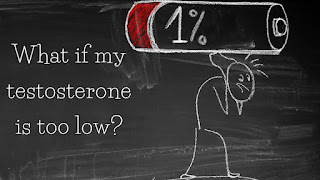Understanding Low Testosterone: Causes, Symptoms, and Treatment
Understanding Low Testosterone: Causes, Symptoms, and Treatment
Introduction
Low testosterone, also known as hypogonadism, is a common medical condition that affects many men, especially as they age. Testosterone is a crucial hormone responsible for various aspects of male health, including muscle mass, bone density, libido, and overall vitality. When testosterone levels drop below the normal range, it can lead to a range of physical and psychological symptoms. In this article, we will delve into the causes, symptoms, and treatment options for low testosterone. low testosterone
Causes of Low Testosterone
Low testosterone can be attributed to a variety of factors, ranging from age-related changes to underlying medical conditions. Here are some common causes:
Aging: One of the most prevalent causes of low testosterone is aging. Testosterone levels typically peak during adolescence and early adulthood and gradually decline with age. This natural decline can result in lower energy levels, reduced muscle mass, and decreased libido. low testosterone
Medical Conditions: Certain medical conditions, such as obesity, diabetes, and chronic illnesses like HIV/AIDS, can interfere with the body's ability to produce testosterone. Additionally, injuries to the testicles, infections, and some medications can also contribute to low testosterone.
Hormonal Imbalances: Hormonal disorders like hypothyroidism and pituitary gland disorders can disrupt the delicate balance of hormones in the body, including testosterone production.
Lifestyle Factors: Unhealthy lifestyle choices, such as excessive alcohol consumption, smoking, and a sedentary lifestyle, can negatively impact testosterone levels. Obesity, in particular, is strongly associated with lower testosterone levels.
Symptoms of Low Testosterone
The symptoms of low testosterone can vary from person to person and may be mistaken for other health issues. It is essential to recognize these signs to seek proper medical evaluation and treatment. Common symptoms include:
Reduced Libido: A decreased interest in sexual activity is one of the hallmark symptoms of low testosterone. Men with low testosterone may experience difficulties achieving or maintaining an erection.
Fatigue and Reduced Energy: Low testosterone can lead to chronic fatigue, decreased motivation, and a general lack of energy. This can affect both physical and mental well-being.
Muscle Loss and Weakness: Testosterone plays a vital role in maintaining muscle mass and strength. Men with low testosterone may notice a decrease in muscle size and overall strength.
Mood Changes: Low testosterone levels can contribute to mood swings, irritability, and feelings of depression. Some men also report difficulty concentrating and memory problems.
Decreased Bone Density: Testosterone is essential for maintaining bone health. Low testosterone can lead to decreased bone density, increasing the risk of fractures and osteoporosis.
Changes in Body Composition: Men with low testosterone may experience an increase in body fat, particularly around the abdomen, and a decrease in lean muscle mass.
Treatment Options
The good news is that low testosterone can often be effectively treated, improving a person's quality of life. Treatment options include:
Hormone Replacement Therapy (HRT): Testosterone replacement therapy involves the administration of testosterone through injections, gels, patches, or implants. This can help restore testosterone levels to a healthy range and alleviate many of the associated symptoms.
Lifestyle Modifications: Adopting a healthier lifestyle can also make a significant difference. This includes maintaining a balanced diet, engaging in regular exercise, managing stress, getting adequate sleep, and reducing alcohol and tobacco consumption.
Treating Underlying Conditions: If low testosterone is the result of an underlying medical condition, such as diabetes or obesity, addressing the primary condition can help improve testosterone levels.
Natural Supplements: Some individuals explore natural supplements like DHEA, zinc, and fenugreek as potential ways to boost testosterone levels. However, it's essential to consult with a healthcare provider before using any supplements.
Psychological Support: Given the emotional and psychological impact of low testosterone, counseling or therapy can be beneficial, especially for managing mood-related symptoms.
Conclusion
Low testosterone is a prevalent condition that can affect various aspects of a man's life, including his physical health, emotional well-being, and overall quality of life. Recognizing the causes and symptoms of low testosterone is crucial for seeking appropriate treatment. If you suspect you have low testosterone, consult with a healthcare provider who can conduct the necessary tests and recommend a personalized treatment plan. With the right approach, many men can successfully manage low testosterone and regain their vitality and well-being.


.jpeg)

Comments
Post a Comment